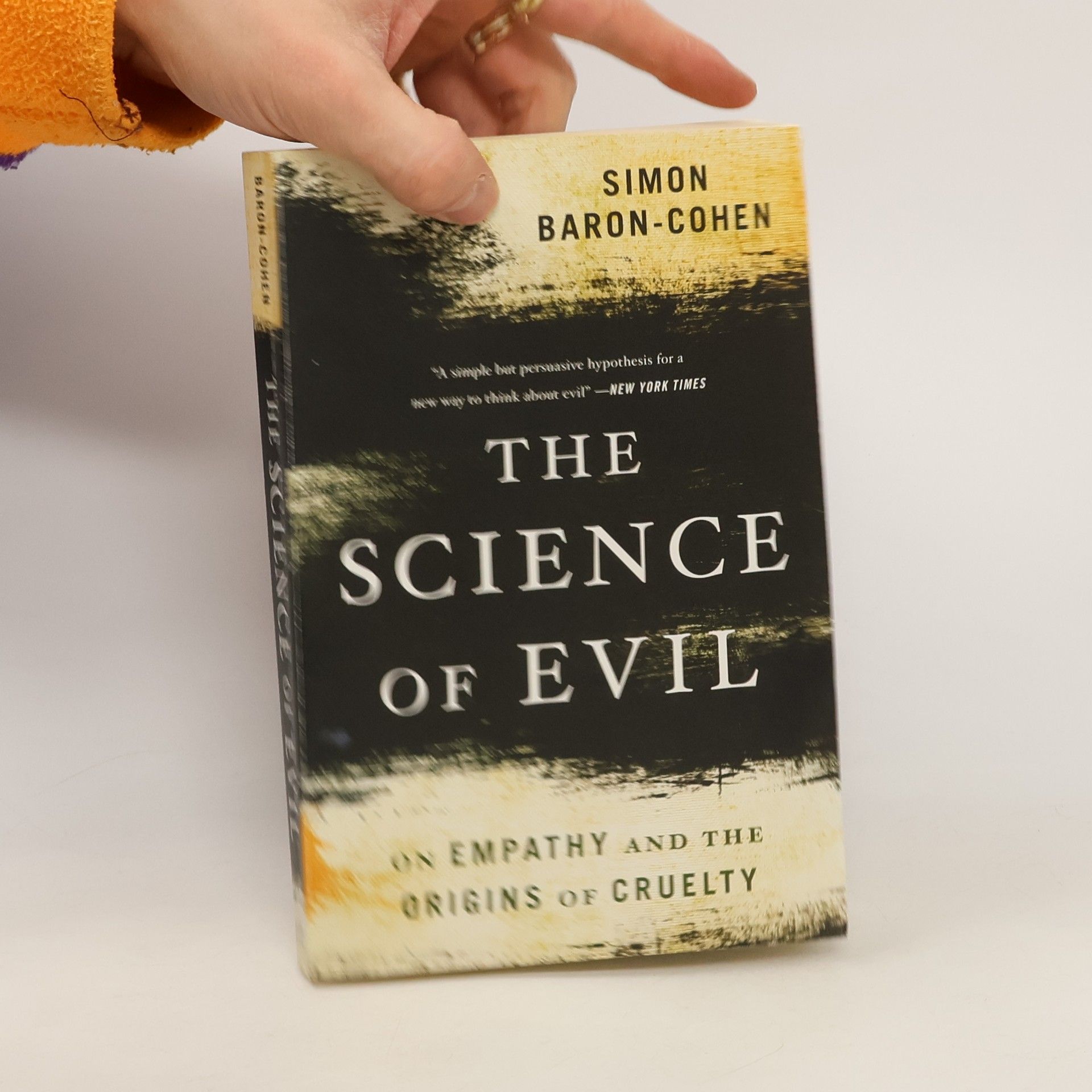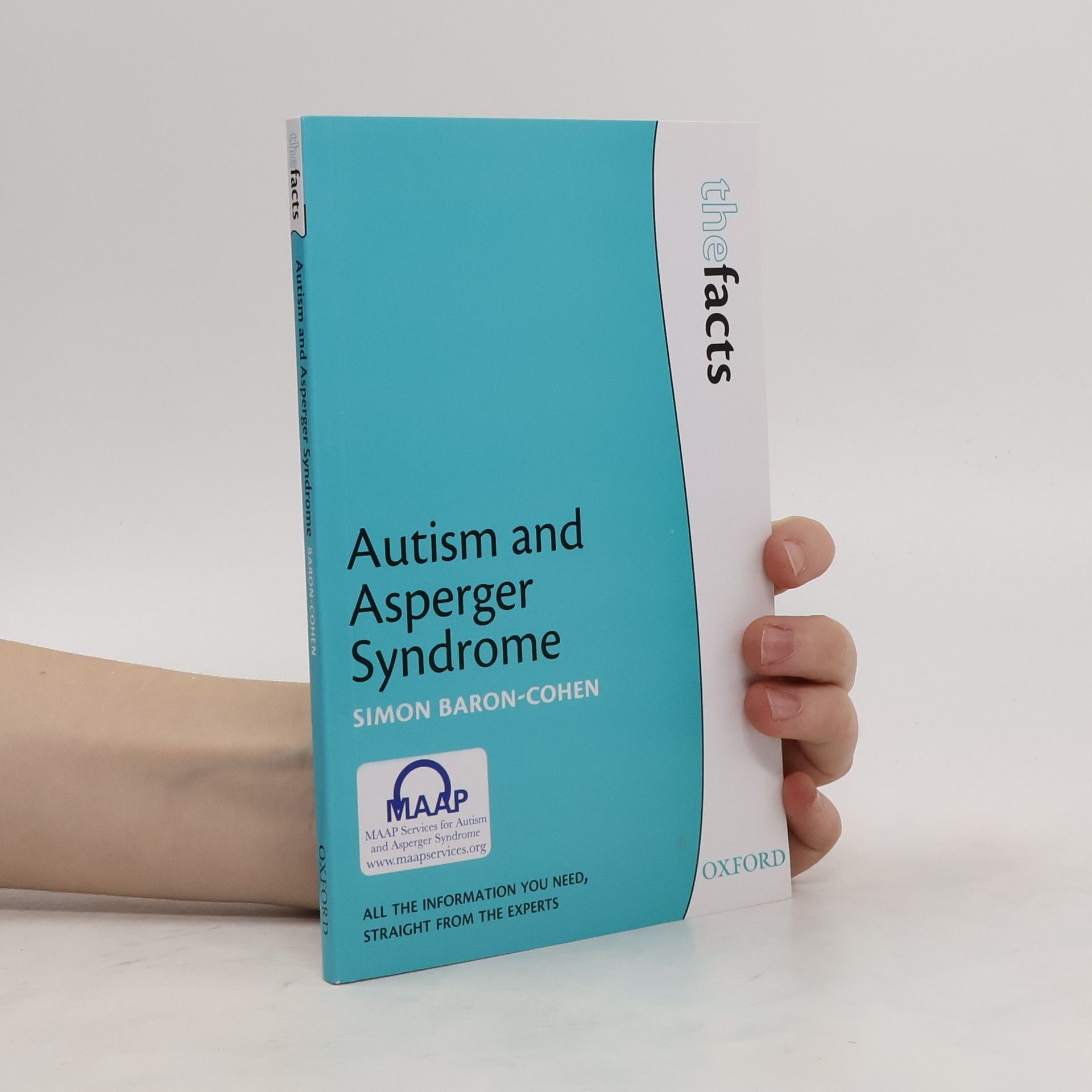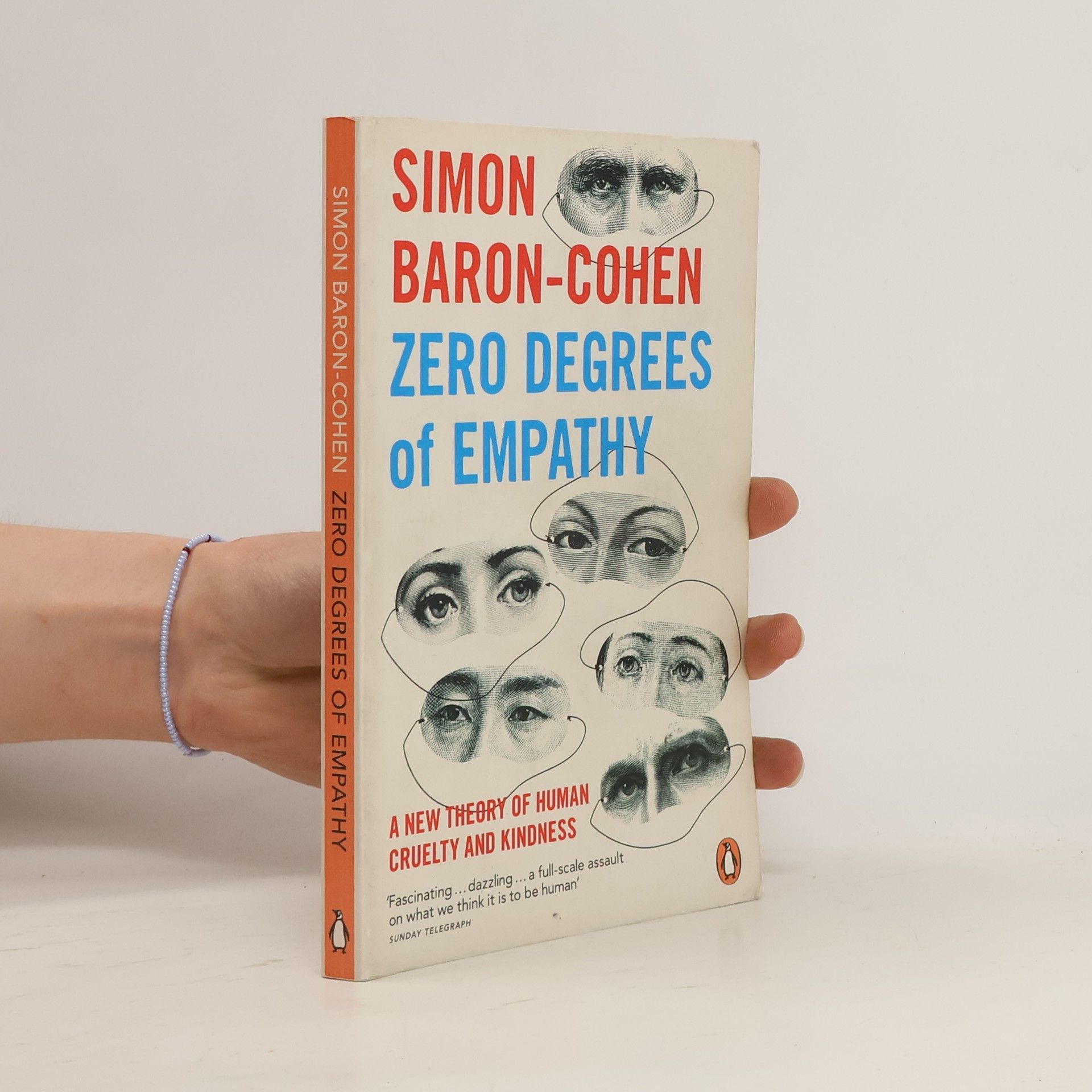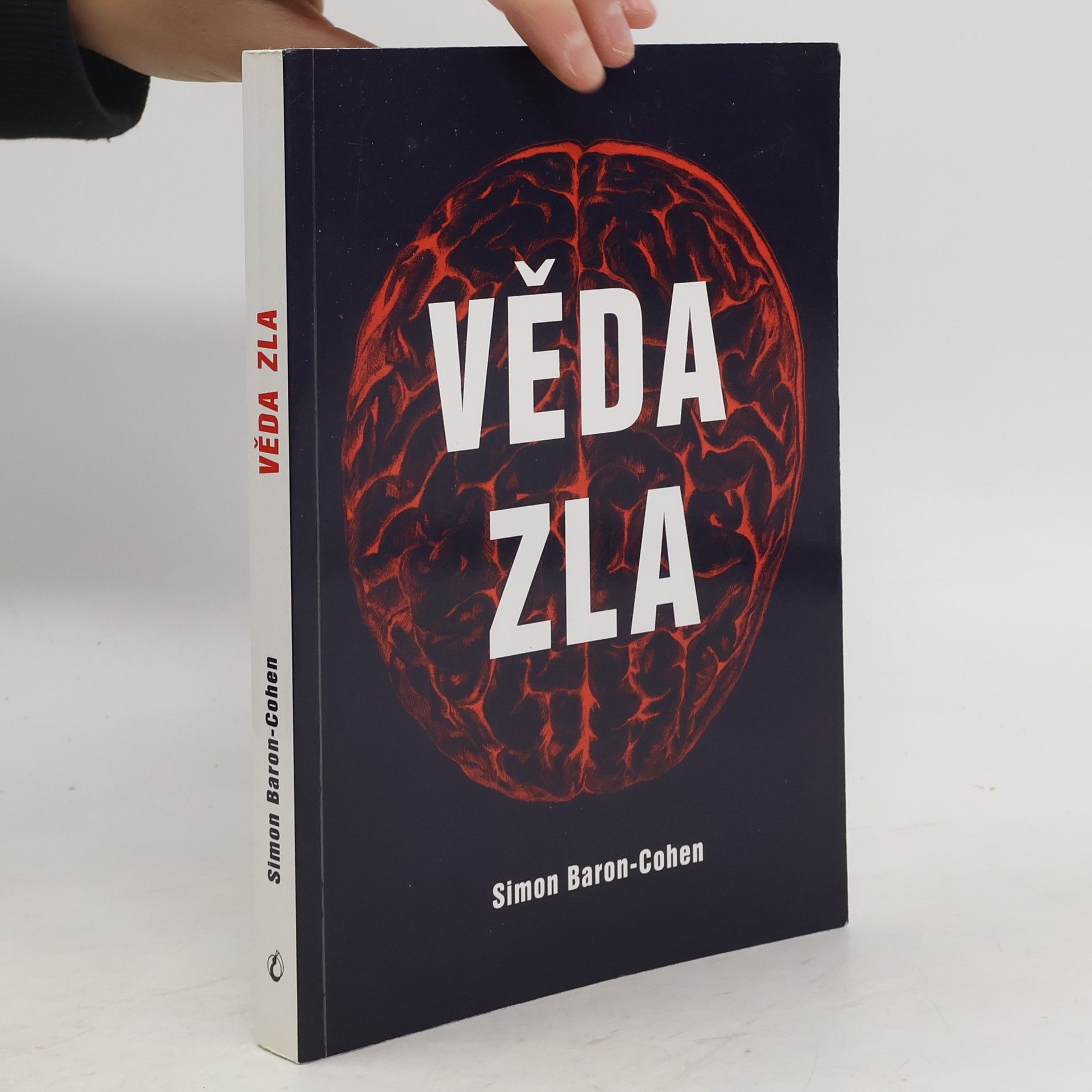Is it possible that - rather than thinking in terms of 'good' and 'evil' - all of us instead lie somewhere on the empathy spectrum, and our position on that spectrum can be affected by both genes and our environments? Why do some people treat others as objects? This book examines an understanding in a study of what it means to be human.
Simon Baron Cohen Livres
Simon Baron-Cohen est Professeur de psychopathologie du développement à l'Université de Cambridge. Ses recherches portent sur l'autisme, explorant les théories de la 'cécité mentale' et du 'cerveau masculin' comme forme extrême. Ses travaux approfondissent la conceptualisation des différences psychologiques entre les sexes à travers la théorie de l'empathie et de la systématisation.







Autism and Asperger syndrome
- 157pages
- 6 heures de lecture
Following on from the highly successful book Autism: The Facts, this new volume by Simon Baron-Cohen summarizes the current understanding of the autistic spectrum, from Asperger syndrome to autism. Written first and foremost as a guide for parents, but what is also certain to become required reading for interested professionals, the book covers what we have learnt to date about the brain, genetics, and interventions for autism spectrum disorders. The book also provides an overview of diagnosis of these conditions, their biological and physiological causes, and the various treatments and educational techniques available. In the book Professor Baron-Cohen also presents a new unified psychological theory of the autistic spectrum.
Mindblindness
- 197pages
- 7 heures de lecture
This text argues that specific neurocognitive mechanisms have evolved that result in mindreading, an ability to interpret, for the most part unconsciously, non-verbal actions. It suggests that autistic children suffer from mindblindness due to selective developmental impairment in mindreading.
A groundbreaking and challenging examination of the social, cognitive, neurological, and biological roots of psychopathy, cruelty, and evil Borderline personality disorder, autism, narcissism, psychosis: All of these syndromes have one thing in common--lack of empathy. In some cases, this absence can be dangerous, but in others it can simply mean a different way of seeing the world.In The Science of Evil Simon Baron-Cohen, an award-winning British researcher who has investigated psychology and autism for decades, develops a new brain-based theory of human cruelty. A true psychologist, however, he examines social and environmental factors that can erode empathy, including neglect and abuse. Based largely on Baron-Cohen's own research, The Science of Evil will change the way we understand and treat human cruelty.
The Pattern Seekers
- 256pages
- 9 heures de lecture
Why can humans alone invent? In this book, psychologist and world renowned autism expert Simon Baron-Cohen puts forward a bold new theory: because we can identify patterns, specifically if-and-then patterns. And he argues that the genes for this unique ability overlap with the genes for autism. From the first musical instrument to the agricultural, industrial and digital revolutions, Baron-Cohen shows how this unique ability has driven human progress for 70,000 years. By linking one of our greatest human strengths with a condition that is so often misunderstood, The Pattern Seekers challenges us to think differently about those who think differently.
The pattern seekers : a new theory of human invention
- 256pages
- 9 heures de lecture
'Celebrates human cognitive diversity, and is rich with empathy and psychological insight' Steven Pinker 'Bold, intriguing, profound' Jay Elwes, Spectator Why can humans alone invent? In this book, psychologist and world renowned autism expert Simon Baron-Cohen puts forward a bold new theory: because we can identify patterns, specifically if-and-then patterns. Baron-Cohen argues that the genes for this unique ability overlap with the genes for autism and have driven human progress for 70,000 years. From the first musical instruments to the agricultural, industrial, and digital revolutions, Pattern Seekers links one of our greatest human strengths with a condition that is so often misunderstood and challenges us to think differently about those who think differently.
Duševná slepota - nevidieť do mysle, Esej o autizme a teórii mysle
- 152pages
- 6 heures de lecture
Simon Baron-Cohen je profesorem vývojové psychopatologie na univerzite v Cambridge. Je ředitelem Centra pro výzkum autizmu (Autism Research Centre), kromě toho se zajímá o výzkum autizmu s ohledem na výzkum teorie mysli. Duševná slepota je asi jeho nejznámější publikací u nás. Představte si, jak by vypadal váš svět, kdybyste si uvědomovali fyzické objekty, ale nebyli byste schopni "vidět" mentální věci, jako myšlenky, přesvědčení, vědomosti, touhy a záměry, které pro většinu z nás celkem samozřejmě představují základ pro naše jednání. Rozšiřte svoji představivost a popřemýšlejte, jaký smysl byste přisoudili lidskému jednání (jakémukoliv živému jednání), pokud by mentální výklad byl daleko za vašimi hranicemi, je to náročný experiment, na jehož konci stojí zjištění, že jen ten, kdo je schopný "vidět" jiným do mysli, je schopný vysvětlit chování druhých a že uprostřed jakékoliv společenské situace se vyplatí vědět, přijít s rozumnou interpretací příčin jednání druhého, a že je to nezbytná podmínka, jak přežít a sociálně existovat.
Wnikliwe uzasadnienie idei, że kreatywność ma wiele cech wspólnych z autyzmem. () Odkrywcza. Kirkus Dlaczego tylko ludzie dokonują wynalazków? Simon Baron- Cohen, psycholog z Uniwersytetu w Cambridge, od kilkudziesięciu lat prowadzi badania autyzmu i zgłębia psychologiczne spektrum ludzkiego myślenia, którego wszyscy doświadczamy. W książce Poszukiwacze wzorów Baron-Cohen przekonuje, że autyzm odegrał równie ważną rolę w historii naszej kreatywności i kultury, jak opanowanie ognia. Baron-Cohen twierdzi, że ludzie z autyzmem odgrywają decydującą rolę w rozwoju ludzkości już od siedemdziesięciu tysięcy lat, od powstania pierwszych narzędzi po rewolucję cyfrową. W jaki sposób? Otóż geny, które wywołują autyzm, umożliwiają również poszukiwanie wzorów będące istotą ludzkiej wynalazczości. Autyści płacą jednak za te zdolności nader wysoką cenę w postaci trudności społecznych, a często również problemów medycznych, dlatego Baron-Cohen apeluje, abyśmy wspierali i honorowali ludzi z autyzmem zarówno w ich ułomnościach, jak i w ich triumfach. Książka Poszukiwacze wzorów nie jest tylko opisem nowej teorii ludzkiej cywilizacji, lecz także wezwaniem do refleksji nad tym, jak społeczeństwo traktuje tych, którzy myślą inaczej.
Věda zla: Nová teorie lidské krutosti
- 252pages
- 9 heures de lecture
Simon Baron-Cohen se v knize Věda zla pokouší nalézt odpověď na otázku, proč jsou někteří lidé nepochopitelně krutí k jiným lidem, proč se lidé v určitých situacích chovají k jiným lidem jako k věcem. S obvyklou odpovědí, že takoví lidé jsou prostě „zlí“, se nespokojuje a pátrá po hlubších, vědecky doložitelných příčinách krutého chování. Za hlavní příčinu krutosti považuje sníženou nebo úplně chybějící empatii, která je společným příznakem některých duševních poruch – hraniční poruchy osobnosti, psychopatie, narcistické poruchy, ale také autismu a Aspergerova syndromu. V některých případech může být chybějící empatie nebezpečná, v jiných může být jejím důsledkem odlišný, někdy prospěšný, pohled na svět. Aby lépe porozuměl důvodům „eroze empatie“, zkoumá její biologické základy – empatický mozkový obvod a genetické predispozice – nezapomíná však na vlivy prostředí a výchovy, včetně zanedbávání a zneužívání dětí. Svět, jehož obraz nám Baron-Cohen předkládá, není výlučně krutý nebo „zlý“. Autor nechává promluvit také ty, kteří se nacházejí na druhém konci spektra empatie – „superempatické“ osobnosti, které mají sílu měnit svět k lepšímu – a připomíná nám, že empatie je možná tím nejcennějším zdrojem, který má dnešní lidstvo k dispozici.
Warum reden Frauen leidenschaftlich gern über Beziehungen, während Männer lieber am Computer sitzen? Frauen und Männer sind vom ersten Tag an anders, denn bereits im Mutterleib werden ihre Gehirne unterschiedlich programmiert, so die These des renommierten Psychologen Simon Baron-Cohen. Anhand von Beispielen aus Hirnforschung, Psychologie und Verhaltensbiologie belegt er, in welchem Maß eine geschlechtsspezifische Prägung schon vor der Geburt stattfindet. Bild der Wissenschaft


